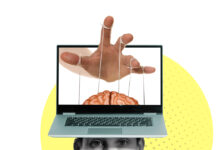Early life trauma (ELT) significantly impacts the symptoms and treatment of depression. In a new, scoping review published in BJPsych Bulletin, researchers found that ELT is correlated with difficult-to-treat depression (DTD), or depression that is more challenging to treat using standardized approaches. Given this relationship, researchers conclude by strongly advocating for childhood trauma to be recognized and addressed, and that treatment approaches to DTD be tailored to meet the individual needs of each particular patient.
Led by Walter Paganin of the University of Tor Vergata, the research team consisted of individuals in institutions across Rome. They describe the implications of their findings, which suggest a relationship between ELT and DTD:
“The established correlation between ELT and DTD is fundamental to both our understanding of DTD and its therapeutic management. Recognising this relationship will be vital in tailoring treatment approaches that directly address the underlying trauma, potentially leading to improved clinical outcomes.”
















What you are actually doing here is reifying the myth of “treatment resistant depression”. This is quite disturbing. Psychiatric drugs don’t treat anything, so how can depression be treatment resistant? Treatment resistance is drug damage. What is happening to MIA? Is it just Missing In Action now? And calling psychiatric drugs medications? Nope. Medications treat pathologies. So now Mad In America is recommending psychiatric drugs?????? Here’s a quote to ponder;” They highlight how approaches that include both psychotherapy and medication have been shown to be especially effective for patients with DTD.”. Here’s a fun fact; Placebo outperforms all “antidepressants” (Irving Kirsch MD). This article, with all it’s nods to “neurobiology” is a pure gift to Big Pharma, replete with biological determinism to the max.
Report comment